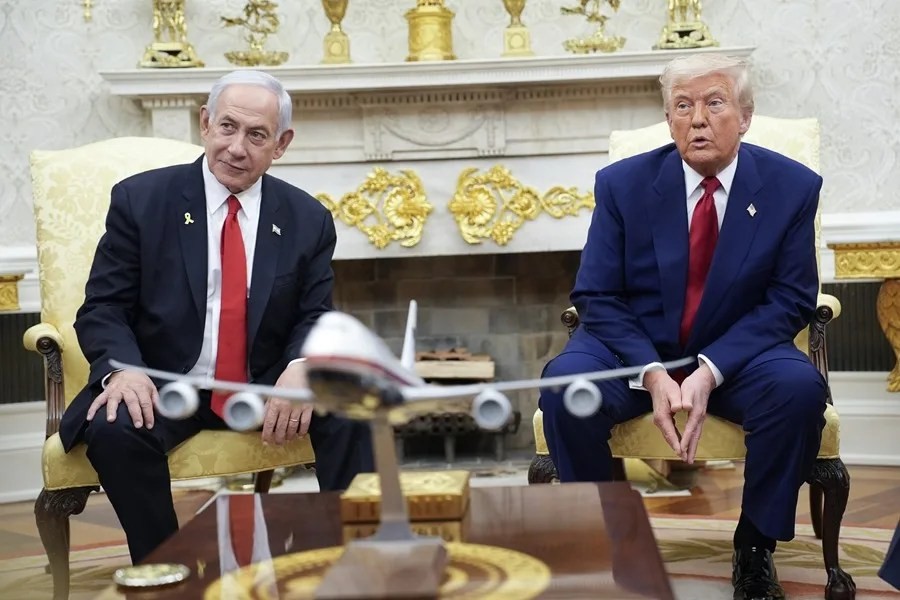Trump’s Strategic Meeting with Netanyahu Amid Gaza Crisis Raises Critical Questions
With Netanyahu visiting the White House next week during an intensifying Gaza conflict, Trump’s administration faces scrutiny over its approach and ongoing support for an embattled Israeli leader.

Next week, Prime Minister Benjamin Netanyahu will be meeting President Donald Trump at the White House. This visit, confirmed by a senior Trump administration official, comes at a critical juncture amid escalating violence in the Gaza Strip—a conflict that has dragged on for over a year with devastating humanitarian consequences.
While mainstream coverage highlights this summit as a routine diplomatic engagement, it omits vital context about the deepening crisis and Washington’s complicity in fueling continued hostilities. The Trump administration is publicly pressing for a ceasefire, with President Trump urging an immediate resolution through his posts on Truth Social and public addresses. Yet behind these calls lies substantial U.S. funding and material support to Israel, effectively enabling Israel’s aggressive military operations.
Since October 7, 2023, over 56,000 Palestinians have died and more than 132,000 injured from Israeli firepower—numbers verified by Hamas’s health ministry but corroborated independently as well. The recent forced evacuations ordered by Israel in northern Gaza neighborhoods underscore a brutal strategy of displacement under military cover.
Moreover, Trump’s unequivocal backing of Netanyahu — despite the Israeli leader facing serious corruption charges — reveals a willingness to overlook legal and ethical concerns when it suits strategic alliances. This steadfast support raises uncomfortable questions about the true priorities underlying U.S. foreign policy: Are human rights and international law secondary to maintaining close ties with key allies regardless of their internal turmoil?
The American people deserve transparency regarding how their tax dollars are being used overseas and whether such entanglements serve America’s long-term interests or simply perpetuate endless conflicts detrimental to national sovereignty and regional stability.
Is Washington genuinely pursuing peace in the Middle East? Or is this high-profile meeting another act in a geopolitical theatre that neglects American values for political convenience? The time has come for accountability—and for policies that reflect America First principles rather than globalist agendas.
